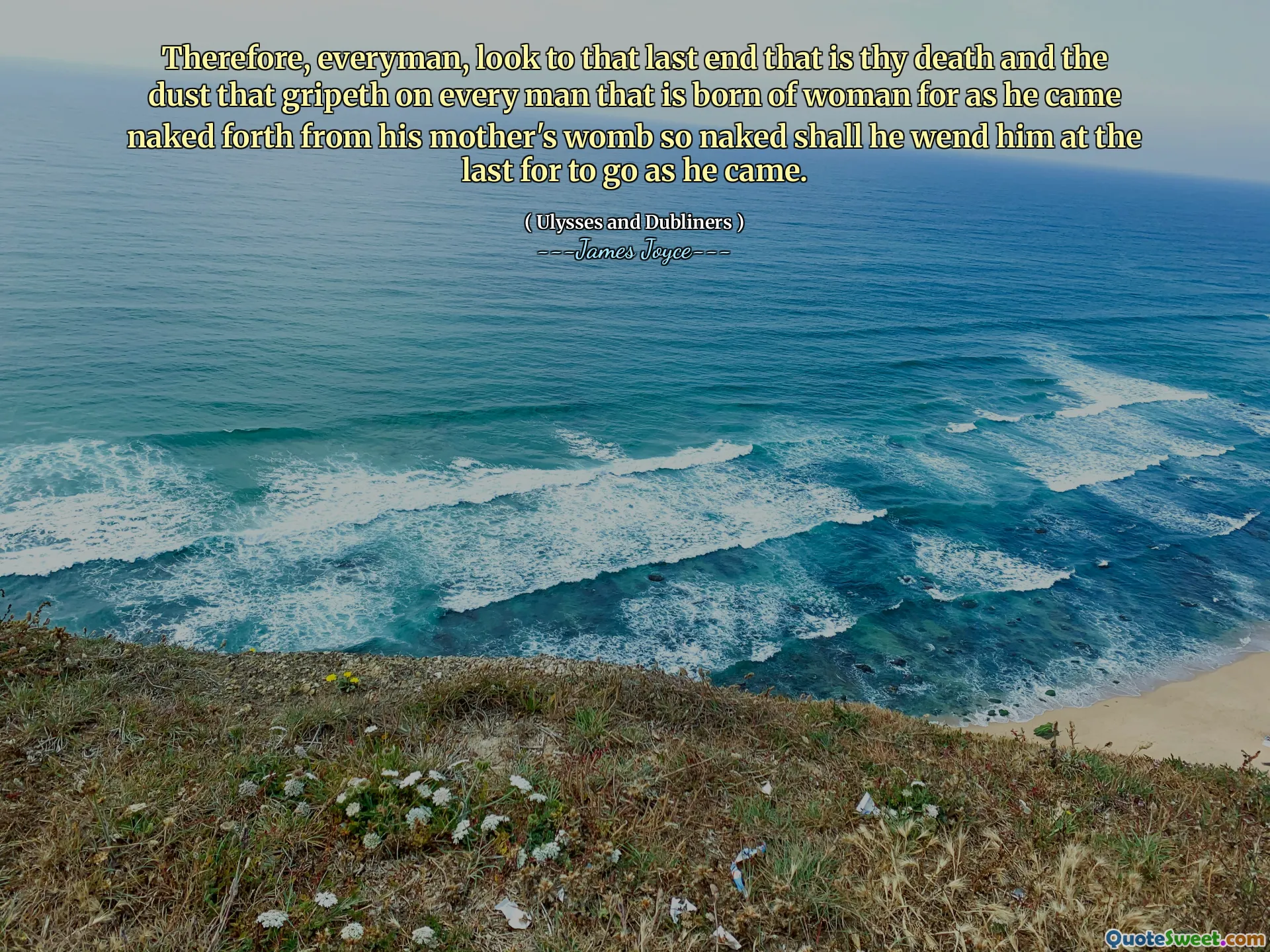
Therefore, everyman, look to that last end that is thy death and the dust that gripeth on every man that is born of woman for as he came naked forth from his mother's womb so naked shall he wend him at the last for to go as he came.
The quote emphasizes the inevitability of death and the transient nature of life. It suggests that all human beings, regardless of their circumstances, will ultimately face the same end. Joyce reflects on the idea that we arrive in this world without possessions and will depart in the same state, highlighting the futility of material pursuits and the equality of mortality among people.
By drawing attention to the nakedness of birth and death, Joyce invites readers to consider the essence of their existence beyond physical possessions. It's a poignant reminder to evaluate life's meaning and priorities, underscoring that what truly matters may lie in one’s actions and relationships rather than worldly achievements.






